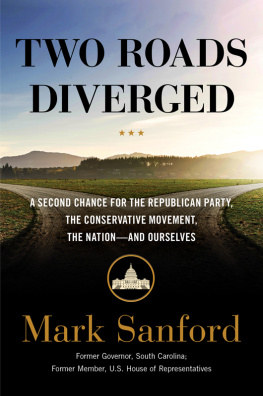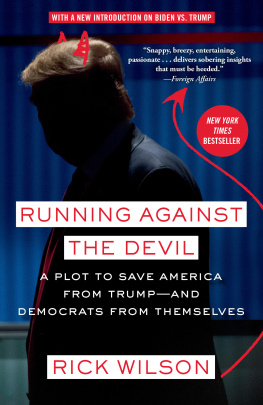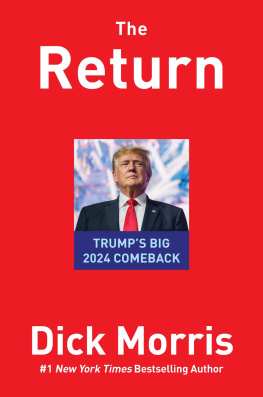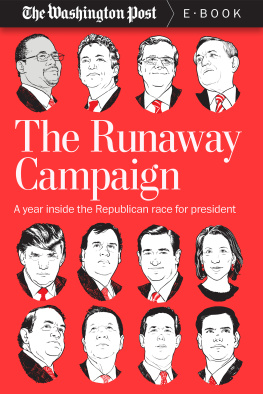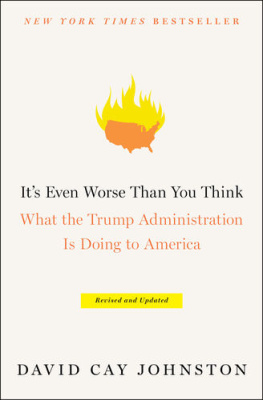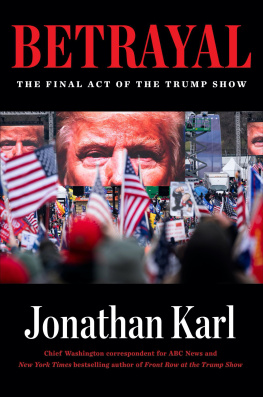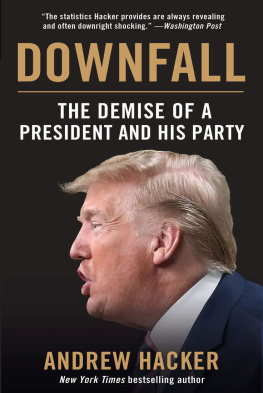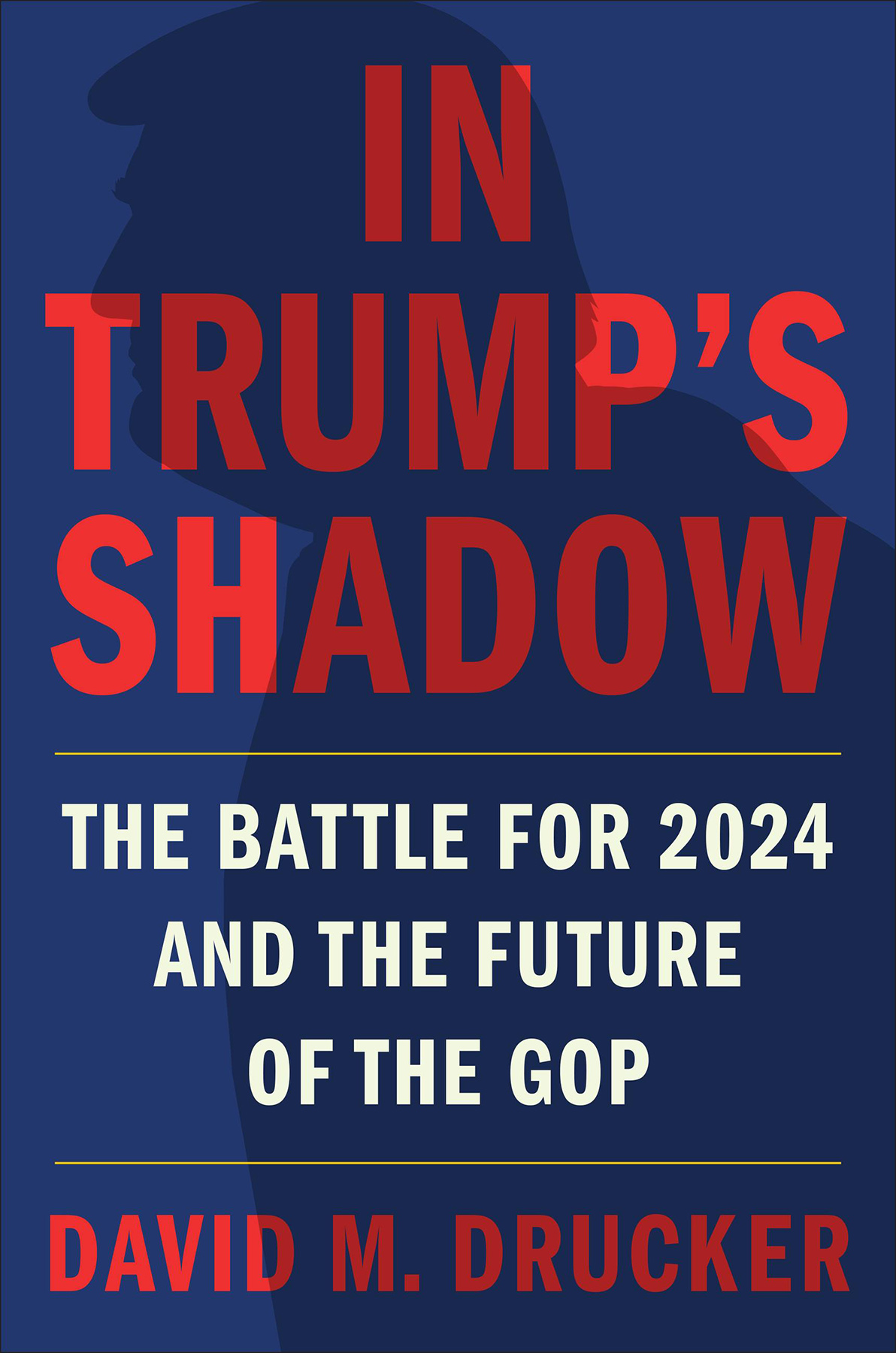
Copyright 2021 by David M. Drucker
Cover design by Jarrod Taylor. Cover illustration by Audrey Malo/Anna Goodson Illustration. Cover copyright 2021 by Hachette Book Group, Inc.
Hachette Book Group supports the right to free expression and the value of copyright. The purpose of copyright is to encourage writers and artists to produce the creative works that enrich our culture.
The scanning, uploading, and distribution of this book without permission is a theft of the authors intellectual property. If you would like permission to use material from the book (other than for review purposes), please contact permissions@hbgusa.com. Thank you for your support of the authors rights.
Twelve
Hachette Book Group
1290 Avenue of the Americas, New York, NY 10104
twelvebooks.com
twitter.com/twelvebooks
First Edition: October 2021
Twelve is an imprint of Grand Central Publishing. The Twelve name and logo are trademarks of Hachette Book Group, Inc.
The publisher is not responsible for websites (or their content) that are not owned by the publisher.
The Hachette Speakers Bureau provides a wide range of authors for speaking events. To find out more, go to www.hachettespeakersbureau.com or call (866) 376-6591.
LCCN: 2021942521
ISBNs: 978-1-5387-5404-7 (hardcover), 978-1-5387-5402-3 (ebook)
E3-20210811-JV-NF-ORI
For my beautiful wife, Jenny, who has made my life a wonderful success story
Its sort of ironic.
Despite Donald Trumps firm grip on the Republican Party, many Republicans have long been planningactively planningfor the day he fades to black and they are afforded the opportunity to compete for his spot at the helm of the GOP. They couldnt even wait for his reelection campaign to conclude.
Thats what occurred to me in the fall of 2019, the first time the light bulb of the idea that would become this book flashed on in my head. My colleagues and competitors had produced some good scoop on Vice President Mike Pences uniquely independent and robust political operation within the White House, and the speculation that led to. Later, I added my own contribution to Pence watch. But around the same time, I had noticed that Trumps loyal No. 2 wasnt the only Republican who appeared to be planning for the future. It was the winter of 2019. Election Day 2020, and Trumps political fate, were practically two years away, and other prominent Republicans (on good terms with the White House) were busy sketching the architectural drawings of a 2024 presidential bid. In some instances, they had begun assembling the infrastructure of an actual campaign apparatus.
In Trumps Shadow started out like that: an attempt to suss out the unfolding campaign for the Republican presidential nomination in 2024, with all of the secret meetings, sibling rivalries, and political action happening hidden, right in plain sight, even as Trump was gearing up to fight for his political life. The forty-fifth president was a force to be reckoned with, he had proven in 2016. But the rejection Trump suffered in the midterm elections two years later, with Democrats capturing the House of Representatives in a forty-seat swing even as the economy roared like gangbusters, was proof positive he was not Superman. So 2020 was hardly a foregone conclusion, and this was long before the coronavirus pandemic and George Floyds death would roil the country and upend our politics.
None of that stopped ambitious Republicans from doing what ambitious politicians do. I thought the early planning was unusual. And agree or disagree with that particular assessment, I thought it would make a cool story, in the form of a book. My agents at Javelin, Keith Urbahn and Matthew Latimer, and everybody at Twelve Books, thought so too, and so I set out to tell it.
Now, when gaming out the field of contenders in an upcoming presidential contest, its natural to focus on who is likely to run; who is likely to raise and/or invest the resources required to mount a vigorous campaign; who is likely to have a good chance of winning his or her partys nomination. I did that. But I had some parameters and constraints to attend to also. First and foremost, the theme of my book necessitated that I include viable candidates who were engaged in early planning. Not every possible Republican 2024 contender, including some that either then or now appear especially competitive for the partys nod, satisfied that metric, and so they were never going to make the cut.
There was also the issue of practicality. I had to limit the number of potential 2024 candidates I would explore, or I would never finish the book. Or at the very least, I wouldnt finish the book before the first votes were cast in the next presidential primary. These criteria shaped the initial list of White House hopefuls I would feature in the book.
All this is to say, youre going to read the book and think to yourself, You didnt write about him. You didnt write about her. This one cant win. What about this one who can win? I hear you. I dont disagree, per se. But the point was not to predict the future, an impossible task. It was to report out a story that might provide a glimpse of different, possible futures for the Republican Party after Trump was no longer president and, as ex-presidents usually do, disappeared from the scene.
Along the way, the story I was telling evolved. What started out as a behind-the-scenes look at the Republican knife fight for the 2024 presidential nomination and leadership of the party after Trump turned into a broader examination of Trumps generational impact on the GOP, through the prism of how the 2024 primary might unfold. What sort of candidates were vying to succeed Trump atop the party? How was his presidency, and, as it turns out, his continued presence as a major political figure postpresidency, affecting the Republican Partys presentand its future?
And then Trump refused to concede defeat to President Joe Biden. And then, on January 6, 2021, the former presidents grassroots supporters ransacked the US Capitol. What of the implications of all of that? This is that story.
Finally, a word on the mechanics of my reporting. Over the course of several months, I spoke to countless Republican Party activists, campaign strategists, insiders, operatives, politicians, and everyone in between with an interest in the GOP and GOP candidates. I spoke with pro-Trump, Never Trump, maybe Trump, and pragmatic about Trump. I spoke with used to like Trump and used to hate Trump. I spoke with establishment Republicans and movement conservatives. I spoke with neoconservatives, conservative insurgents, Trump populists (and other populists), and Ronald Reagan conservatives.
In order to extract their candid insights and obtain coveted nuggets of information, I granted interviewees the option of talking to me on deep background: I could report the details they revealed to me but would not disclose them as the source of those details. Most preferred that option and took me up on the offer. Where I quote private comments and conversations, this reporting is based on information relayed to me by various sources who are familiar with what was said.
Anonymous sourcing has rightly come under scrutiny as it has become more accepted in political journalism. Im sympathetic to complaints about the practice, especially complaints from readers. But I have found over the years that the most experienced, knowledgeable political operatives, the ones who are able to tell me what is really going on, and why, prefer to remain anonymous. They have clients running for office whom they are not permitted to speak for. They have clients running for office whom they would lose if those clients knew what they really thought. They have clients who would suffer politically if the views of their consultants became public. And some, believe it or not, just dont want their name in the proverbial newspaper.


